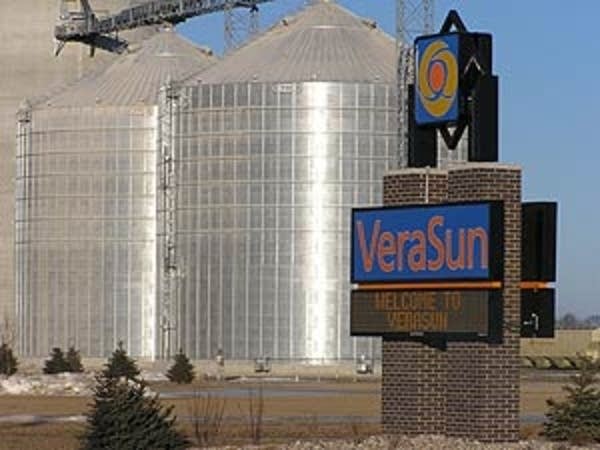Ethanol industry braces for tough times

The first signs of major trouble surfaced in the last month or so when ethanol companies began changing their construction plans. One of the nation's largest ethanol businesses, VeraSun Energy of Brookings, South Dakota, was among them.
VeraSun Chief Financial Officer Danny Herron says the company decided to suspend construction of an ethanol plant in Indiana.

"We did this just as a precautionary move," says Herron. "Because ethanol prices have dropped about 50 cents a gallon in the last 60 days. So we've suspended the construction until such time as we see market conditions improve."
VeraSun's problems are a microcosm of what the ethanol industry as a whole faces. Too much production.
Create a More Connected Minnesota
MPR News is your trusted resource for the news you need. With your support, MPR News brings accessible, courageous journalism and authentic conversation to everyone - free of paywalls and barriers. Your gift makes a difference.
Even though it suspended construction of the Indiana plant, VeraSun has four others nearing completion. One is in southern Minnesota near the town of Welcome.
By the middle of next year the new plants will double VeraSun's output. Across the nation, ethanol production is rising rapidly. Annual output is approaching 7 billion gallons.
"Ethanol prices have dropped about 50 cents a gallon in the last 60 days."
Dozens of new plants currently under construction are expected to double that figure in the next few years. VeraSun's Danny Herron says the plentiful supply is causing ethanol prices to fall.
"It's stressing the marketplace right now in terms of the ability to offtake all the ethanol," says Herron. "So this is expected for a short period of time. We think it will recover probably in 2008."
Before that happens there could be a lot of pain for ethanol companies. Adding to the problem is the high price of corn, the fuel's principal ingredient. Bill Lee manages an ethanol producer in western Minnesota. He says for some companies, the industry downturn could be fatal.
"Depends on how severe and how long the pricing situation persists," says Lee. "I think that there will probably be some plants that will really be challenged to the point of not being able to continue in operation."

Lee says his company, Chippewa Valley Ethanol in Benson, has already taken steps to make sure it avoids that fate. The company last month canceled a major expansion. Lee says the approaching downturn convinced him and others that now is a bad time to take on new debt.
"Plants that have no debt and some cash reserve, and we're in that situation, I think most of the veteran Minnesota ethanol plants are in that situation. Are better positioned than maybe the newer plants that have higher debt," says Lee. "These are things that can make a significant difference when margins are tight."
Lee says plant shutdowns and canceled projects will help slow the growth of ethanol supplies. He says that should increase competition, boost prices and improve profits.
Ethanol consultant Bill Tierney says there's another factor in place that should help the ethanol industry recover. He says fuel companies are eager to blend ethanol into their gasoline, usually at a 10 percent rate. They like blending because it's a moneymaker.
"It's guesstimated that the current margin for blending, the profit, is about a dollar a gallon," says Tierney.
A federal government blending subsidy accounts for half of that. The other 50 cents comes from market forces. Since ethanol now sells for roughly half a dollar less than gasoline, a blender saves that amount buying the corn based fuel instead of gas.
Tierney says one thing that may slow blending growth is infrastructure. He says most gasoline blenders must install new tanks, pipes and pumps to handle ethanol. Some are reluctant to do that because they wonder if the big profits will last.
A few years ago ethanol companies faced a similar choice. Most decided to build anyway. The decision to cash in, by dozens of companies, is a major contributor to the industry's current problems.
